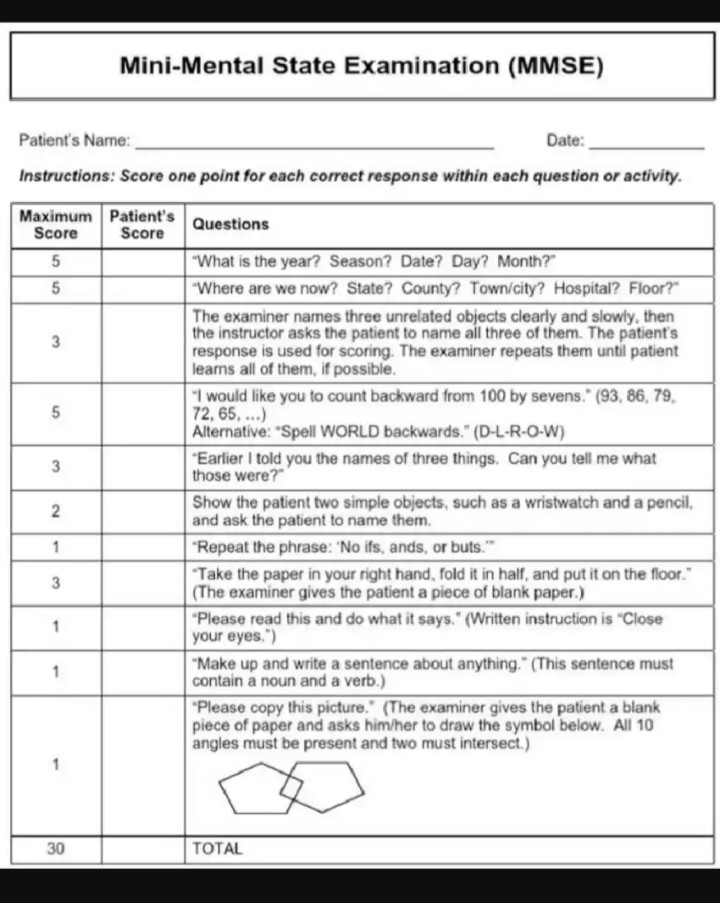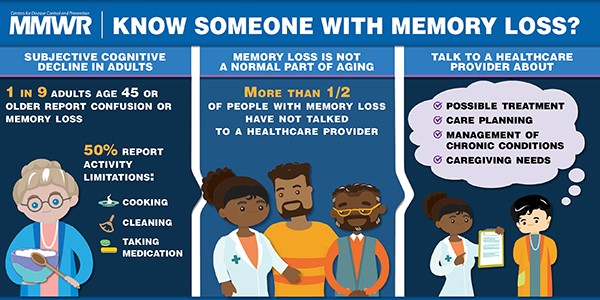Table of Contents
How to prevent cognitive decline in older adults
What is Cognitive decline?
Cognitive decline or cognitive impairment is a medical condition that results to a person having issues remembering things, concentrating, learning new things, or making decisions.
Summary
- Cognitive decline may begin after midlife, but most often occurs at higher ages (50 and above).” (Aartsen, et al., 2002)
- According to centre for disease control (U.S. Data), the prevalence of cognitive decline is 11.1% or 1 in 9 older adults. The 65 year and above presented with a slightly higher SCD percentage when compared with the 45- to 64-year-olds. More men than women presented with SCD. Blacks, African Americans, and Hispanics presented more with SCD. Level of Education and whether a person was living alone were found to be risk factors also.
- Cognitive decline, otherwise called intellectual decline, can come on abruptly or step by step, and it tends to be super durable or brief. It tends to be startling for the individual encountering the indications just as their loved ones.
Diagnosis of cognitive decline in older adults
The MMSE (The mini mental state exam) is a recognized test method used to diagnose older adults suffering from cognitive decline.
It 30‐question assessment of cognitive function that evaluates attention and orientation, memory, registration, recall, calculation, language and ability to draw a complex polygon (Folstein 1975).
The scores are ranged from 1 to 30
Scores from 26 and above shows that the person is normal
Scores from 21 to 25 indicates early-stage Alzheimer’s disease
Scores from 10 to 24 indicates moderate dementia
While scores from 1 to 9 indicates severe cognitive impairment or decline

Symptoms of cognitive decline in older adults
- Forgetfulness.
- Loss of items.
- Loss of train of thoughts.
- Experiencing more difficulty or inability with execution of tasks.
- Easily confused.
- Poor judgement.

Causes of cognitive decline in older adults
Neurodegenerative conditions are one of the main causes of cognitive decline. These conditions may include Alzheimer’s sickness, Lewy-Body illness, Parkinson’s infection, and frontotemporal degeneration (harm and loss of nerve cells in the cerebrum).
Alzheimer’s disease is a progressive disease associated with the progressive shrinking of the brain cells which causes death of brain cells and results to cognitive decline.
Other causes of cognitive decline include
- Medication and Toxins: Narcotics and sedatives are the most well-known kinds of medication that may interfere with how the brain works. Anticholinergic medications block the compound (synapse) delivered by nerve cells to convey messages to different cells. This can influence muscle compressions in the body just as learning and memory in the cerebrum.
Toxins and harmful compounds we encounter through pollution may also contribute to cognitive decline.
- Low levels of folate and vitamins: These assist with brain formation in embryos and brain function in adults. Lower than required levels of these may lead to cognitive decline.
- Mental challenges: Memory issues, thinking, or fixation. Gloom and uneasiness, bipolar, schizophrenia, or different types of major psychological sickness are the most well-known contributing components.
- Hormonal Imbalance: Hormonal imbalance may also impact cognitive abilities.
- Stroke and Head Injury: Stroke damages brain cells, likewise head injuries may also temporarily or permanently cause damage to the brain.
- Neurodegenerative conditions: The most widely recognized conditions that cause intellectual decrease incorporate Alzheimer’s sickness, Lewy-Body illness, Parkinson’s infection, and frontotemporal degeneration (harm and loss of nerve cells in the cerebrum).
Risk factors associated with cognitive decline
- Gender: According to centre for disease control, men tend to suffer more from cognitive decline with an estimate of about 11.3% in men and 10.6% in women
- Diabetes: Type 2 diabetes is associated with approximately a 1.5- to 2.5-fold increase in the risk of dementia.Ott A, Stolk RP, van Harskamp F, Pols HA, Hofman A, Breteler MM. Diabetes mellitus and the risk of dementia: the Rotterdam Study. Neurology 1999; 53:1937–1942pmid:10599761
- Smoking: smoking leads to Alzheimer’s disease which in turn causes cognitive impairment in older adults.
- Hypertension: high blood pressure damages the blood vessels that takes blood to the brain, when the blood vessels are disrupted, it leads to cognitive decline.
- Elevated cholesterol: A study of cholesterol synthesis showed the level of the cholesterol precursors lanosterol and lathosterol are correlated with low memory performance in older adults (Teunissen et al., 2003).
- Being overweight: findings have shown that high BMI causes affects memory, attention and recognition. Riggs NR, Huh J, Chou CP, Spruijt-Metz D, Pentz MA. Executive function and latent classes of childhood obesity risk. J Behav Med. 2012 Dec;35(6):642–50.
How to prevent cognitive decline in older adults
There are a few ways older adults may be able to adjust and expand their ability to learn which in turn slows down cognitive decline, if not keep it at bay. These include:
- Continuing to learn: Learning new things. There is a lot an individual can learn. Older adults may learn a new language, a new skill like painting e.t.c.
- Staying mentally stimulated: Understanding books and magazines, playing pre-packaged games, going to exhibition halls, and playing instruments all assist with decreasing the danger of cognitive decline.
- Remaining socially active: Social interactions and building social relationships can assist with forestalling cognitive decline by encouraging mental stimulation in a safe environment for an older adult.
- Eating a balanced diet: Eating a nutritious food might assist forestall cognitive decline by supplying your body with supplements that can diminish the danger of hypertension, type 2 diabetes, and elevated cholesterol.
- Exercise: Exercise helps us relieve stress and keep fit. There is so much benefit that may be gotten from a habit of consistent exercising. Safe exercises such as taking thirty minute walks, thrice a week have been shown to help the heart and assist body functions.
Frequently asked questions
What is the most widely recognized reason for cognitive decline?
There may be a variety of reasons, including effects of drugs; effects of ailments and other sickness such as metabolic as well as endocrine disturbances; delirium because of disease, (for example, a urinary tract or COVID-19 disease); misery; and dementia. with Alzheimer’s being the most common reason.
Can cognitive decline be healed or reversed?
Mild cases of cognitive decline have been known to reverse upon the identification of the primary cause of the decline and where lifestyle changes and modification was done. There are claims that exercise (mental and physical) overtime may assist with reversing cognitive decline.
There are studies which have shown that cognitive decline can be reversed. These studies were done on mice. Regardless of this, modification to lifestyle as suggested above alongside seeking professional guidance is helpful for managing the decline.
Read also: How To Manage Anxiety in Older Adults
Final thoughts
It can be scary observing manifestations of cognitive decline in yourself or loved ones. There is the tendency to become frustrated and become overly worried. However, do not self-diagnose or force a reversal. Let a professional carry out the assessment and give treatment.
Featured image: Man photo created by wayhomestudio – www.freepik.com

